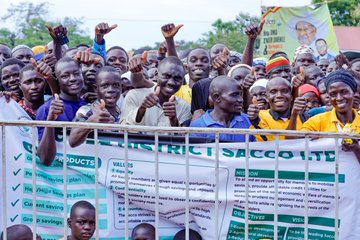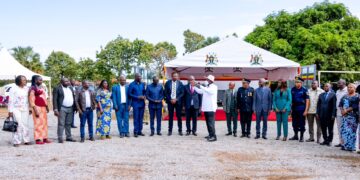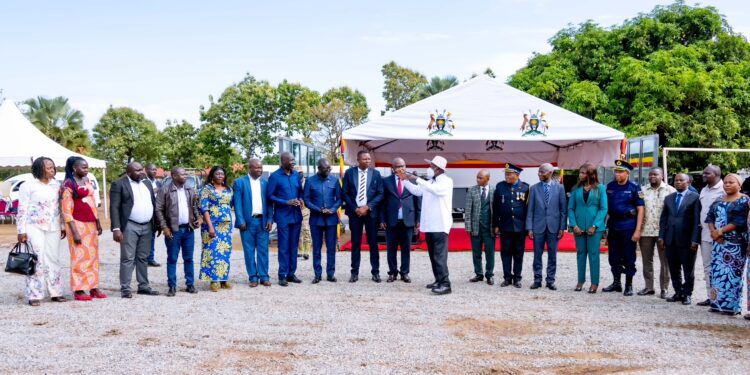Yumbe — President Yoweri Kaguta Museveni has praised Uganda’s prevailing peace and unity, attributing it to the enduring policies of the National Resistance Movement (NRM) and the spirit of reconciliation that ended decades of conflict in regions like West Nile.
Speaking during Peace Day celebrations in Yumbe District, the President reflected on the journey since the signing of the peace agreement between the Government of Uganda and the Uganda National Rescue Front II (UNRF II) on December 24, 2002. This year’s commemoration ran under the theme: “23 Years of Peace and Progress: Uniting West Nile for Socio-Economic Transformation.”
“I’m glad that Uganda is now united and peaceful, and we can build national institutions,” said President Museveni. “You have seen that when we are recruiting in the army, we recruit from the whole country on an equal basis. There’s a quota for every district.”
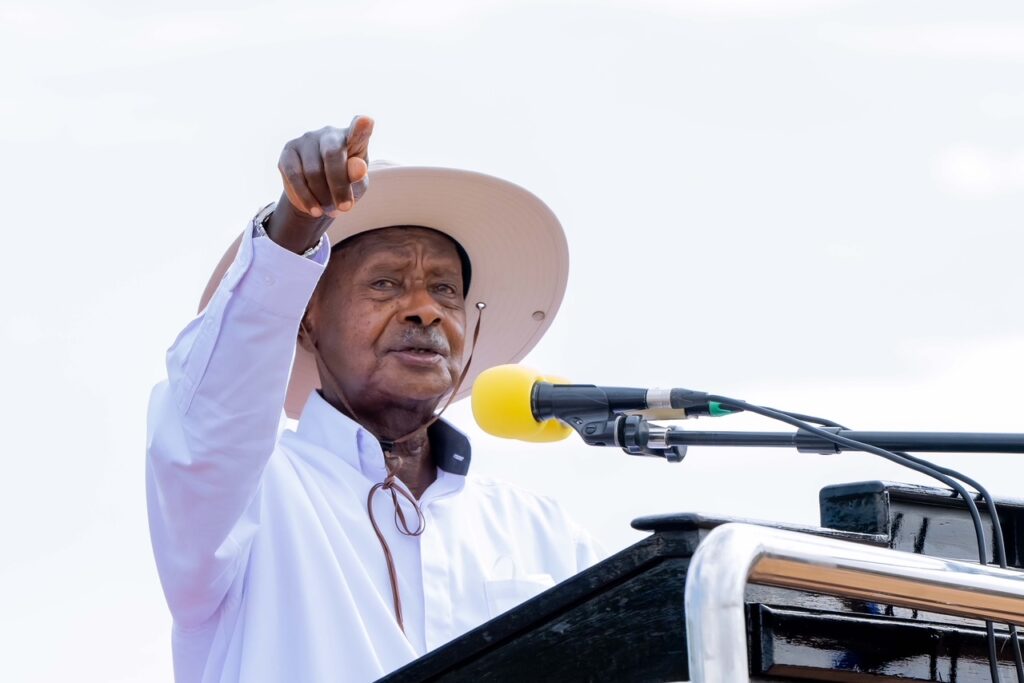
The President hailed the milestone as a demonstration of NRM’s philosophy of “opposing what is wrong and supporting what is right,” which he said has guided Uganda through difficult transitions since independence.
“Some people may think we have not addressed all their problems, like the former combatants, but it’s not because we don’t want to — it’s because some things have to be prioritised to keep the country standing,” he added. “Without peace, we wouldn’t be able to tackle the issues of former fighters or build social services and infrastructure.”
President Museveni recalled historical moments when the NRM refused to support leaders and ideologies that threatened national unity, citing examples from the 1960s to the fall of Idi Amin.
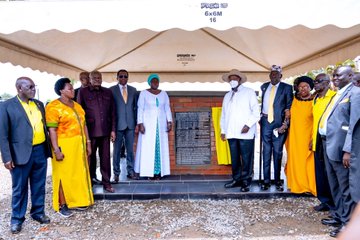
“In 1979, although we were fighting Amin, we were not fighting the people of West Nile,” he explained. “We told our soldiers that the people of West Nile were not the problem. The mistakes were made by a few leaders. When we took power, I told those who had fled to Sudan to come back — and nothing happened to them because we don’t believe in revenge.”
He added: “Meanwhile, in Acholi and Lango, we also rejected the policy of revenge. We didn’t agree with the targeting of the people of Lango because of Milton Obote or the targeting of Acholi because of Bazilio or Tito Okello. It is that policy of opposing wrong and supporting right that Gen. Moses Ali was talking about in his speech. We never even persecuted the UPC; we gave them the Uganda House, although that house had been built with government money, because when Obote collapsed, Uganda House was at the foundation level. Amin used government money to build the whole building.”
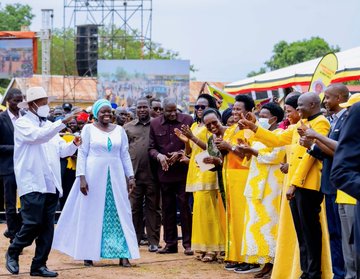
The President honoured former rebel leaders and peace negotiators, particularly Gen. Salim Saleh and Gen. Ali Bamuze, for their efforts in securing peace in the region.
He unveiled a monument in memory of the peace agreement signatories and pledged phased compensation to ex-combatants, starting with Shs1 billion out of a promised Shs26 billion.
The 2nd Deputy Prime Minister, Gen. Moses Ali, thanked the President for initiating the peace deal that ended the conflict, noting the heavy cost borne by the UNRF during the struggle.
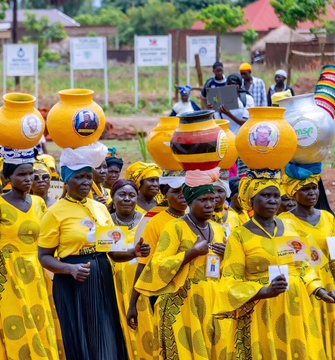
“We lost 513 combatants in action, and more than 60% of the survivors have since passed on,” said Gen. Ali. “This gesture of compensation is timely and appreciated.”
Hon. Huda Oleru, Minister of State for Veteran Affairs, lauded the strategic leadership that brought about peace while encouraging the people of West Nile to embrace government programs like the Parish Development Model to improve their livelihoods.
Former Inspector General of Police, Gen. Kale Kayihura, who played a role in the peace process, expressed gratitude for being remembered. “It’s very exciting to see this transformation,” he said.
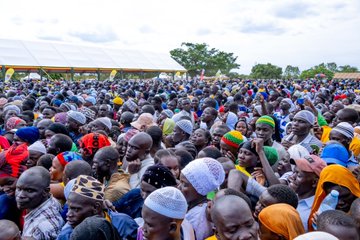
Hon. Zoe Bakoko Bakoru, former Minister of Gender, Labour and Social Development, emphasised the emotional and symbolic importance of the day.
“Today we’re not just remembering a date — we are celebrating a triumph of spirit,” she said. “We’re honouring the courage it took to stop fighting and the sacrifice it took to forgive and move forward together.”
She also praised President Museveni’s steady leadership. “Your commitment to inclusive dialogue and your willingness to listen paved the way for this historic peace accord.”
